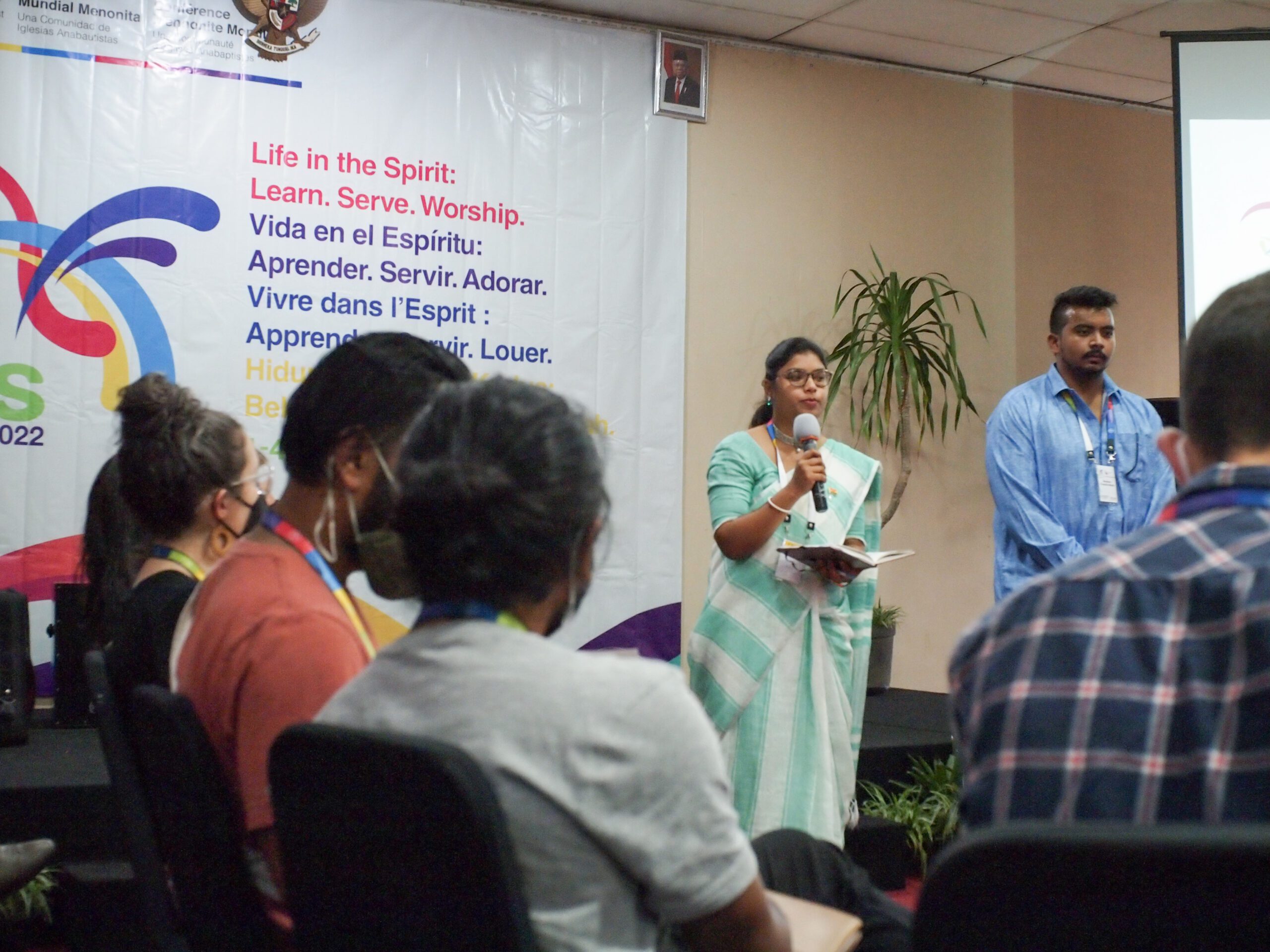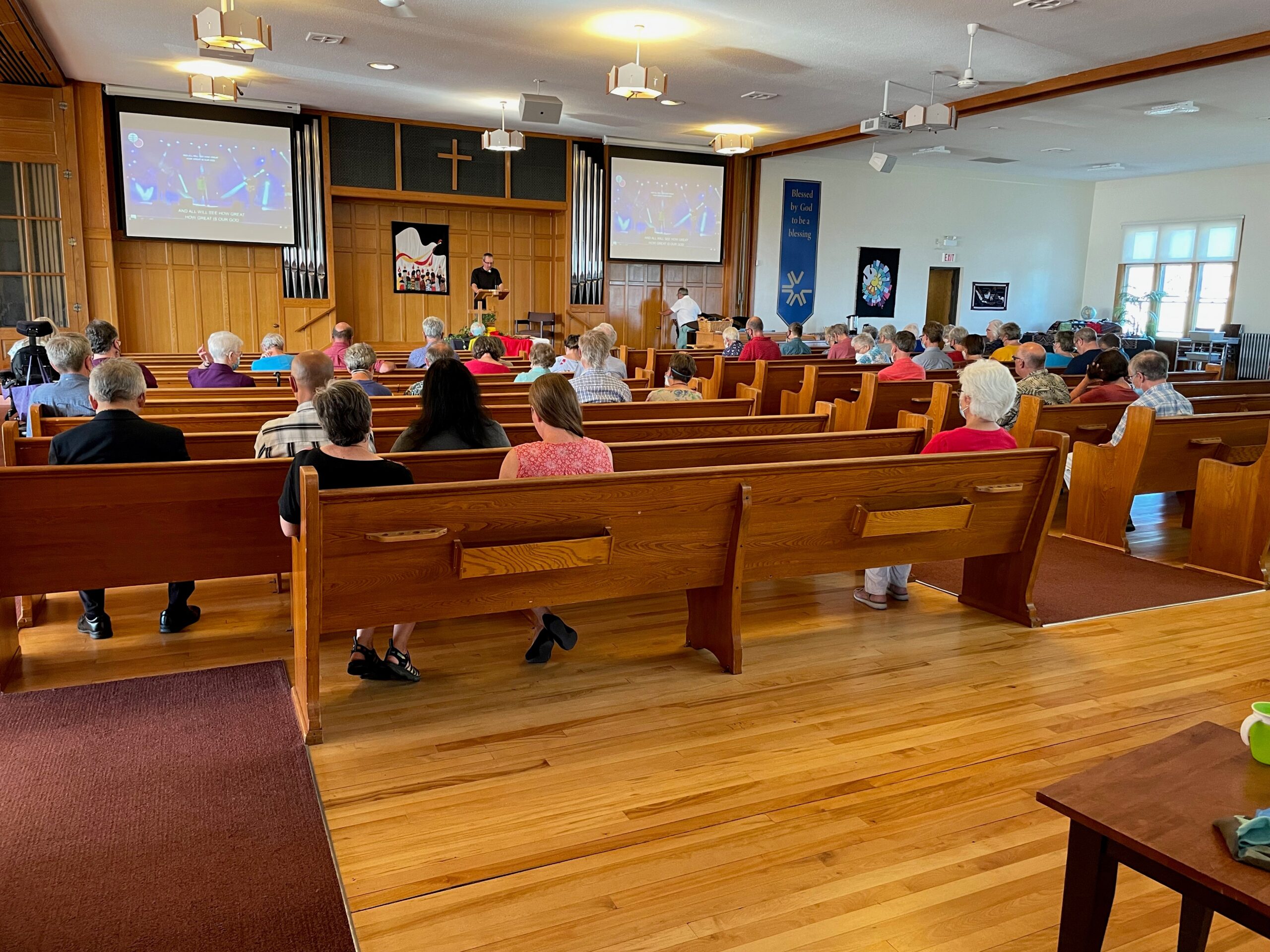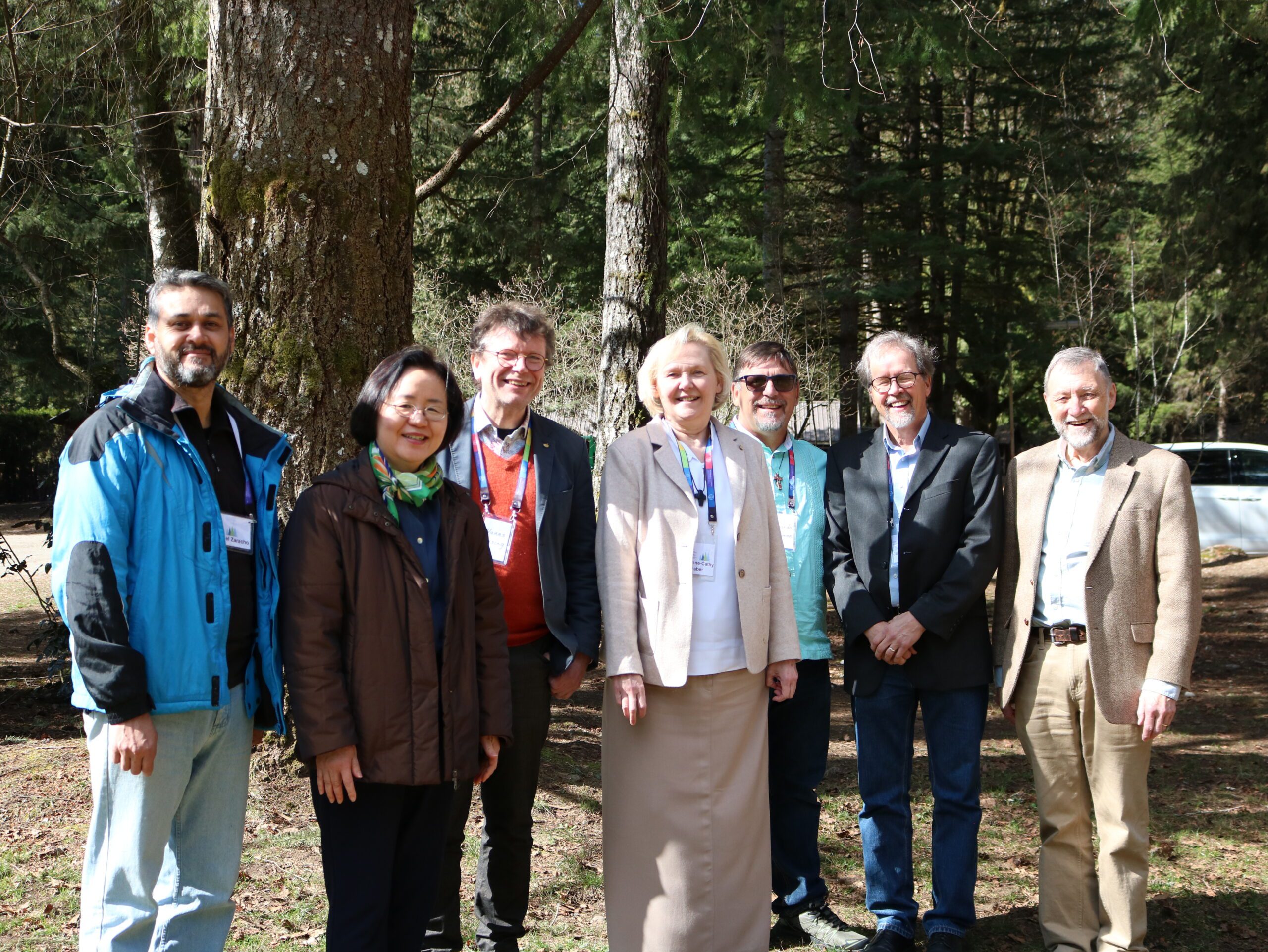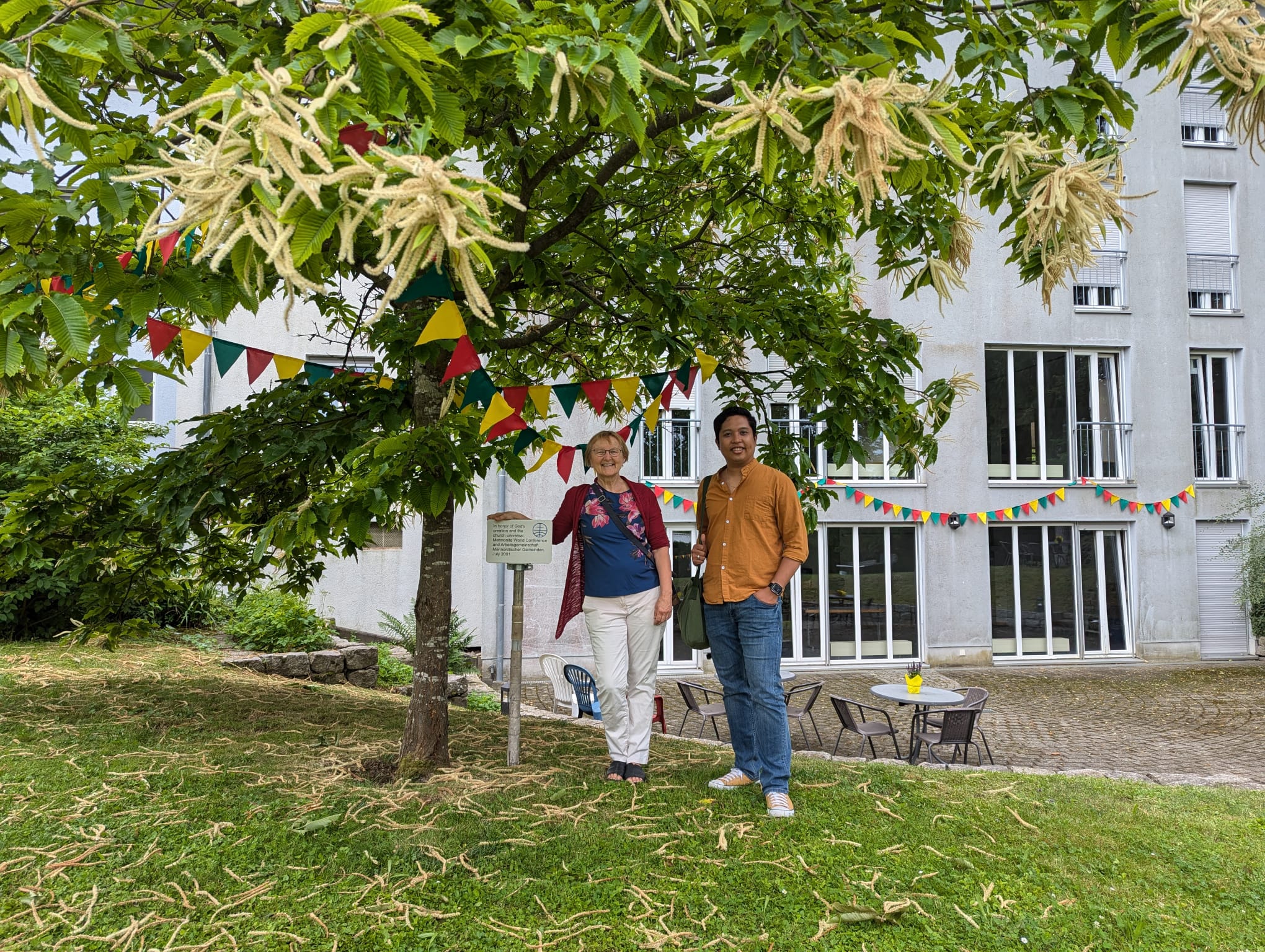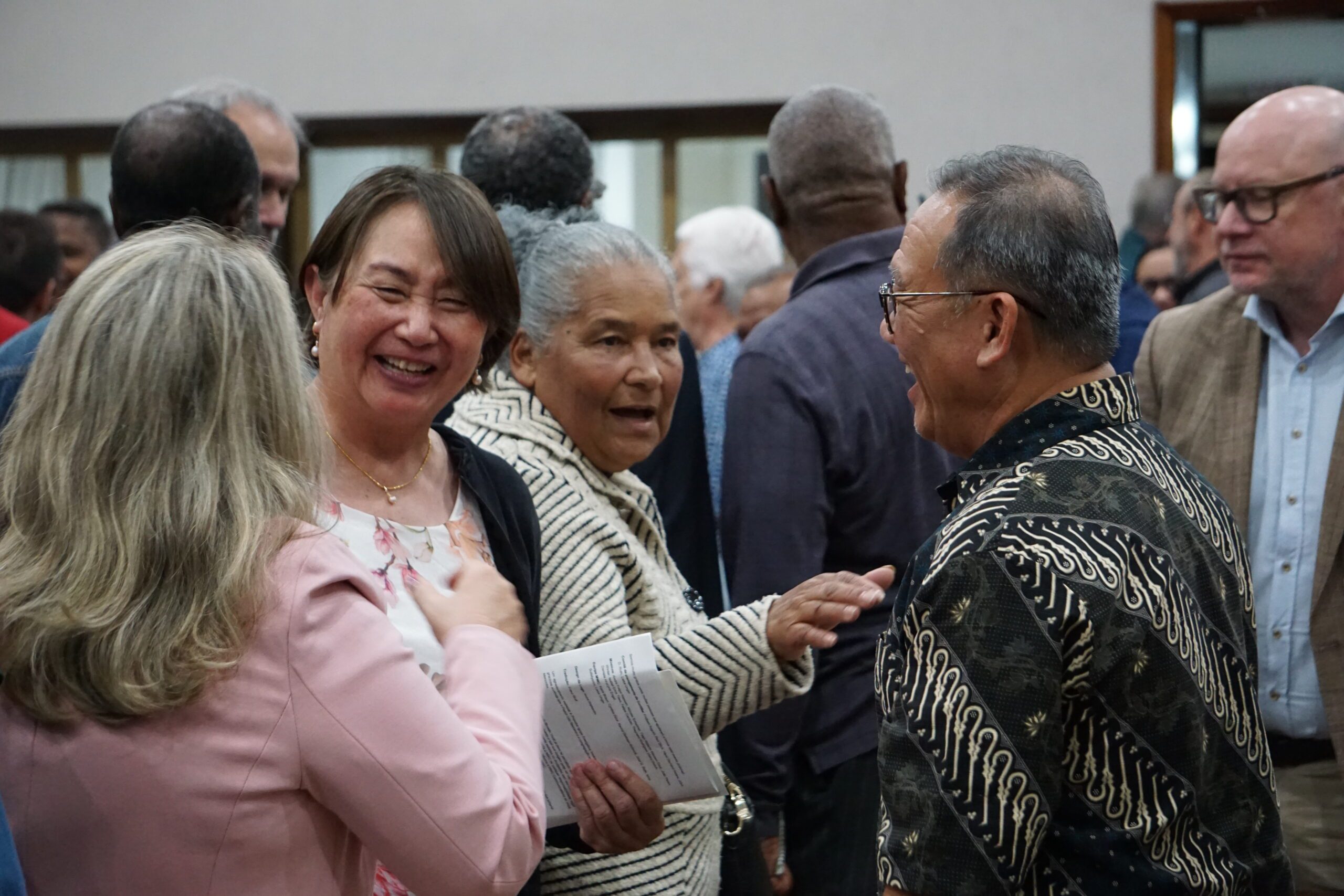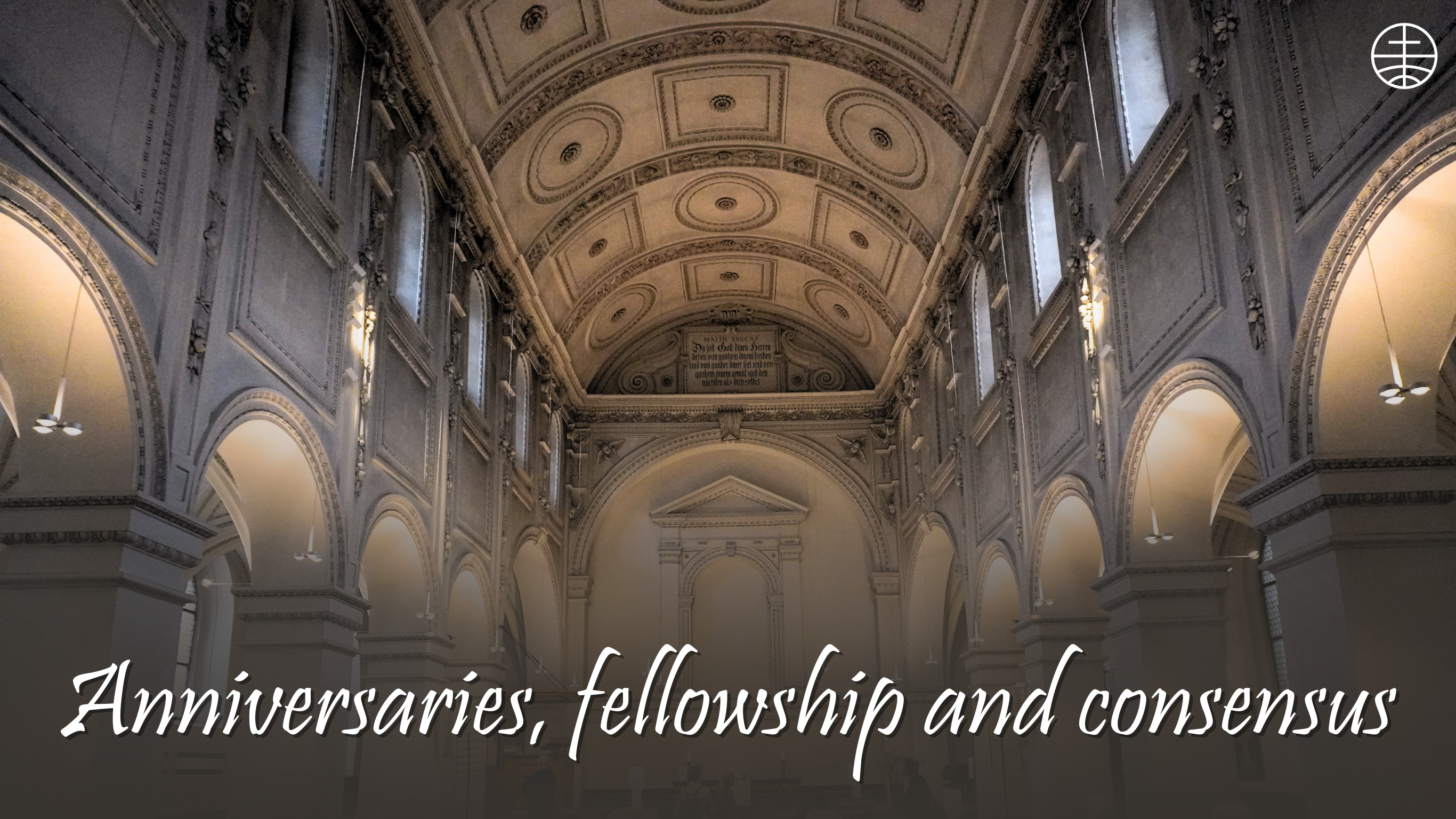-
Bigger responsibilities in the global church
At the meetings in May 2025, General Council members will vote on a proposal for every Mennonite World Conference full member to have one Young AnaBaptist (YAB) delegate in the General Council starting 2028.
-
Powering the spinning wheel
Join in prayer for the global family “Prayer has been our spinning wheel. Thanks to the global church for the resilience in your prayers. It is encouraging to know that someone somewhere in the globe is reporting your issues to God,” says Okoth Simon Onyango, Mennonite Church Uganda, bishop. The members of Mennonite World Conference
-
A celebration of ecumenism, joy, confession and hope
We invite everyone to worship with us! The worship service marking the culmination of Mennonite World Conference’s 500th anniversary event in Zurich, Switzerland, will be livestreamed. The event takes place Thursday, 29 May 2025, at 15:00 UTC. (Please note an earlier version gave the incorrect time. 15:00 UTC is when the service begins; tune in
-
Restoring Our Family to Wholeness study guide
A guide for study, worship and dialogue “Restoring Our Family to Wholeness: Seeking a Common Witness”
-
Seeking common witness together
MWC-WCRC dialogue creates statement and study guide “The search for peace starts within the body of Christ,” says Tom Yoder Neufeld, chair of MWC’s Faith & Life Commission. As Mennonite World Conference celebrates 100 years of living out unity within the Anabaptist family, our leaders are also working on our mission to relate with other
-
Biblical and Theological Reflections on the MWC Tagline
Presented by Thomas R. Yoder Neufeld to the MWC Executive Committee at their meeting in Curitiba, Brazil, in April 2024. I. Following Jesus – “Who do you say that I am?” Introduction A year ago, at Camp Squeah in British Columbia, Canada, the EC developed a new tagline for the MWC: “Following Jesus, living out
-
General Council leaves a mark
At a prayer meeting, a Mennonite World Conference staff member prayed that the presence of Anabaptists gathered in Germany for General Council meetings would leave a mark. Although the prayer was to leave behind the fragrance of Christ, there will also be a living memento of Mennonite World Conference’s visit. The Executive Committee, Commissions, Creation
-
Celebrate 100 years of unity
A centenary only comes around every 100 years! Mennonite World Conference is celebrating their 100th anniversary with a worship service and reception in Schwäbish Gmünd, Germany, 25 May 2025. “We hope Anabaptists will be able to make the journey to Schönblick from hundreds of kilometres in each direction around Europe to celebrate this momentous anniversary
-
MWC Structure
Mennonite World Conference is a membership-based organization; where strategic decisions are made by representatives of member churches.
-
MWC Vision & Mission
We are Mennonite World Conference. Called to be a communion, or koinonia, of Anabaptist-related churches linked to one another in a worldwide community of faith for fellowship, worship, service and witness.
-
Anniversaries, fellowship and consensus
Around the world, Anabaptists are marking 500 years of our Jesus-following movement with worship services, historical lectures and regional gatherings. For Mennonite World Conference (MWC), the anniversary year coincides with the triennial meeting of the General Council. Additionally, 2025 is a double anniversary: it also marks 100 years of MWC drawing together Anabaptists into one
-
Speaker’s bureau
Invite the global church into your congregation! MWC member congregations are welcome to invite one MWC speaker per year to bring a message from the global Anabaptist-Mennonite family. This may be for Anabaptist World Fellowship Sunday, Peace Sunday or any day you wish to give special attention to the global family. Please consider giving an
